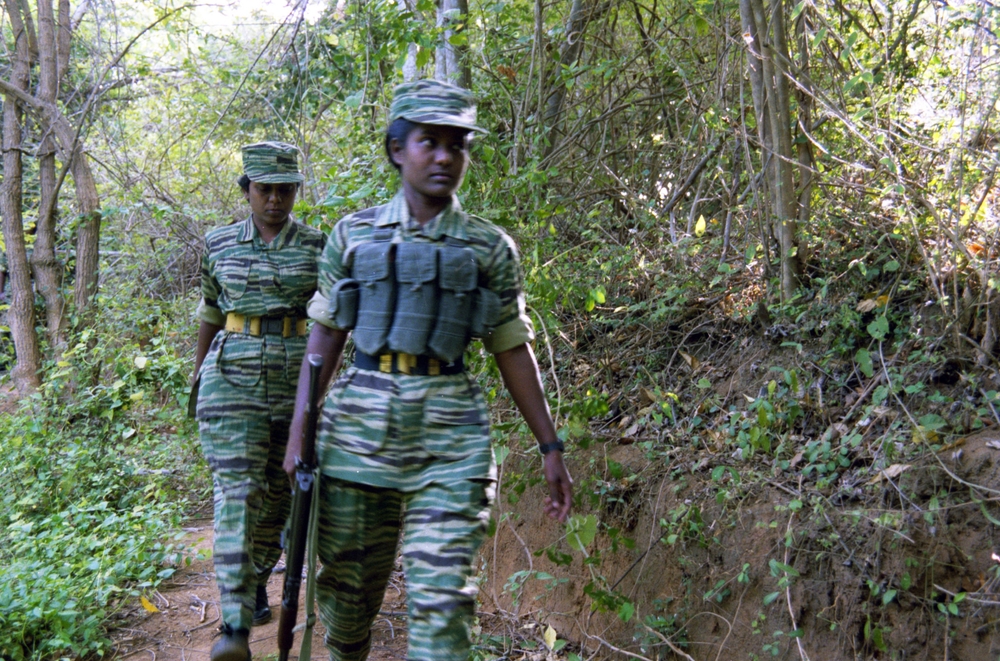Canada’s Diplomatic Tightrope: Tamil Diaspora and Global Security Challenges
Published
- 3 min read

Canada’s role as a sanctuary for diverse immigrant communities often intertwines with global geopolitics, placing it at the crossroads of complex international disputes. The country’s Tamil diaspora, among the largest in the world, exemplifies this dynamic as it shapes Canada’s stance on Tamil Eelam, Sri Lanka, and broader security concerns. Recent developments highlight Canada’s challenges in balancing advocacy for human rights, freedom of expression, and its global diplomatic obligations.
Tamil Diaspora and Canadian Advocacy
Canada is home to over 200,000 individuals of Sri Lankan origin, predominantly Tamil, concentrated around the Greater Toronto Area. Over decades, the Tamil community has grown influential, voicing their struggles and aspirations on Canadian soil. A key moment came with the establishment of Tamil Genocide Remembrance Day and Tamil Genocide Education Week, symbolizing Canada’s recognition of Tamil suffering during Sri Lanka’s civil war.
While these commemorations resonate deeply with the Tamil community, they have drawn criticism from Sri Lanka. Colombo perceives these acts as legitimizing a narrative that aligns with Tamil separatists and potentially undermines reconciliation efforts. The Tamil Genocide Monument in Brampton, for instance, became a flashpoint, sparking protests and diplomatic discontent from Sri Lanka, which views the initiative as exacerbating tensions rather than fostering understanding.
Sri Lanka’s Concerns: A Counter-Narrative
Sri Lanka’s government has consistently rejected allegations of genocide, emphasizing its battle against the Liberation Tigers of Tamil Eelam (LTTE) as a fight against terrorism. The LTTE’s insurgency for a Tamil homeland in northeastern Sri Lanka resulted in a 26-year conflict, leaving deep scars on all communities.
Colombo’s narrative highlights the LTTE’s role in civilian casualties, recruitment of child soldiers, and suicide attacks. For Sri Lanka, Canada’s alignment with the Tamil diaspora’s grievances risks legitimizing elements once linked to LTTE sympathizers, thereby straining bilateral relations.
Revival of LTTE: A Growing Concern?
Recent intelligence reports suggest that LTTE-linked operatives in Canada, Europe, and elsewhere are attempting a resurgence. Canadian authorities have faced allegations of allowing extremist elements to exploit the country’s liberal freedoms under the guise of community advocacy.
From funding webinars advocating Tamil Eelam to suspected drug-trafficking networks channeling resources for LTTE revival, the signs of a concerted effort are alarming. The LTTE’s financial assets, frozen for years, are reportedly being targeted for withdrawal and use in mobilization campaigns.
Trudeau’s Approach: Champion of Freedoms or Diplomatic Misstep?
Prime Minister Justin Trudeau’s stance on such issues underscores Canada’s commitment to freedom of expression and human rights. However, critics argue that this approach sometimes overlooks broader security implications. Similar criticisms have emerged in India, where Trudeau’s perceived inaction on Khalistani separatism has strained ties with New Delhi.
In Sri Lanka’s case, Trudeau’s endorsement of Tamil Genocide Remembrance Day drew Colombo’s ire, which labeled the move as pandering to diaspora politics for electoral gain. Canada’s stance has created an impression of partiality, complicating its role as a neutral advocate for reconciliation in Sri Lanka.
Implications for Bilateral Relations
The repercussions of Canada’s Tamil advocacy extend beyond its borders. For Sri Lanka, such actions risk emboldening separatist movements, complicating reconciliation efforts in a post-war society. The strain on Canada-Sri Lanka relations may also affect Canada’s influence in South Asia, particularly with nations wary of separatist sympathies.
Canada’s broader foreign policy goals, including fostering ties with emerging economies like India, could also face hurdles. India, which dealt with LTTE spillover effects during the Sri Lankan civil war, remains cautious about its resurgence. Canadian actions perceived as enabling LTTE sympathizers could adversely impact Ottawa’s relations with New Delhi, an increasingly critical partner in Canada’s Indo-Pacific strategy.
The Way Forward
To navigate these challenges, Canada must adopt a balanced approach that respects its domestic advocacy for human rights while acknowledging the geopolitical sensitivities of its actions. Key steps include:
- Enhancing Dialogue: Strengthening diplomatic engagement with Sri Lanka to address grievances while supporting Tamil diaspora aspirations through legitimate channels.
- Monitoring Extremist Elements: Proactively identifying and curbing activities linked to LTTE sympathizers to uphold Canada’s commitment to global security.
- Encouraging Reconciliation: Supporting international mechanisms that promote reconciliation in Sri Lanka, ensuring that justice is served for all communities affected by the civil war.
Conclusion
Canada’s engagement with its Tamil diaspora underscores its commitment to human rights but also highlights the intricate interplay of domestic politics and global diplomacy. Striking the right balance will be critical for Canada to maintain its values without compromising its role on the international stage. By fostering dialogue and collaboration, Canada can ensure that its advocacy contributes to peace, justice, and lasting reconciliation.
